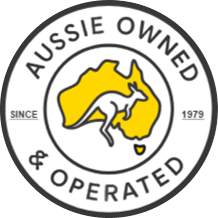- Get Extra
- Individuals
- Business
- Tools
- Tax Courses
- Contact
2022-23 Federal Budget Breakdown
Monday, 4th April 2022
This week the Federal Government delivered their 2022-2023 budget with many changes that might get lost in the shuffle of the soon-to-be-called election noise. Luckily, we’ve taken the hard work out for you and combed through the weighty document to find key information you need to know for your tax.
Personal Taxation One of the significant areas of focus for many Australians is how the Budget will affect their taxes. Some of the highlights regarding personal taxation include: For the 2021-22 financial year, the low- and middle-income tax offset has been increased to a maximum of $1,500. Singles and couples with individual wages between $48,001 and $90,000 are eligible for a $1500 tax offset. The low-income tax offset has not changed and will continue to apply for the financial years 2021-22 and 2022-23. On a $37,500 income, the maximum amount of the low-income tax offset is $700. For those earning more than $66,667, the offset is phased out. Individuals will be able to deduct the costs of completing Covid 19 examinations to attend employment starting July 1, 2021. As a result, companies should not pay a fringe benefits tax to deliver the test's benefit to employees. Business Taxation For the business owners, or those that have the great responsibility of an organisation's tax, here are the highlights regarding business taxation: A planned 20% increase in the cost of external training courses for small businesses (with a revenue of less than $50 million). In addition, the cost of business expenses and depreciating assets that enable digital adoption, such as portable payment devices, cyber security systems, or subscriptions to cloud-based services, will be allowed deductions. The deduction is valid for expenses incurred between 7.30 p.m. on March 29, 2022, and 30 p.m. on June 30, 2023. In each qualifying income year, an annual cap will apply, making expenditures up to $100,000 eligible for the raise. PAYG/GST Instalments: The Budget states that the GDP boost factors for small and medium businesses would be limited to 2% for instalments relating to the 2022-23 income year. Businesses with an annual aggregated turnover of up to $10 million for GST instalments and $50 million for PAYG instalments are subject to the measure. The Government plans to digitalize trust and beneficiary income reporting and processing. It will make it possible for all trust tax return filers to lodge income tax returns electronically, allowing for more pre-filling and automating ATO assurance processes. However, the Budget papers contain no further information beyond what was previously announced. If passed, this law will take effect on July 1, 2024. Superannuation Highlights Turning the focus on retirement and Superannuation, the Federal Government had two key deliverables, which are: For the 2022-23 financial year, the 50% reduction in the minimum superannuation pension withdrawal requirements will be extended. This policy will help retirees avoid selling assets to meet the minimum drawdown criteria, given the continued volatility in financial markets. The Super Guarantee rate will increase to 10.5%. It's worth noting that the Budget made no changes to the legislated increase in the Super Guarantee rate from 10% to 10.5% for 2022-23. Other measures Temporary reduction in fuel excise - commencing at midnight on Budget night, the fuel excise will be reduced by 50% for six months. $250 cost of living payment - In April 2022, the government will give eligible pensioners, welfare recipients, veterans, and concession cardholders a $250 one-time cost of living payment. Extension of apprentice wage subsidies – The Budget confirmed that the Boosting Apprenticeship Commencement (BAC) and Completing Apprenticeship Commencements (CAC) salary subsidies will be extended for another three months, until June 30, 2022. The above measures are just some of the Federal Government's deliverables within the Budget. Still, if you would like to discuss in further detail how budget changes will affect you or your business, you can schedule an appointment with one of our Tax Professionals, who can walk you through it. Want more detail? Have a read of the full 2022-23 Federal Budget at budget.gov.au.

